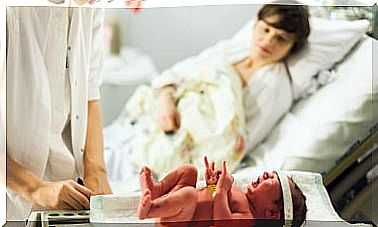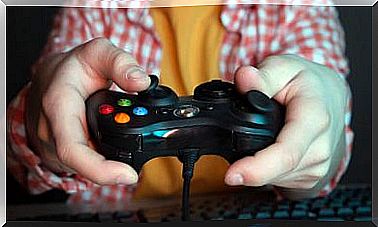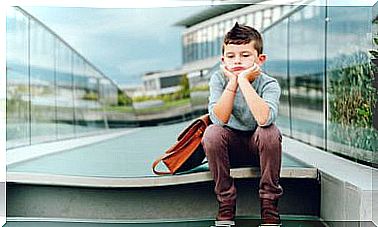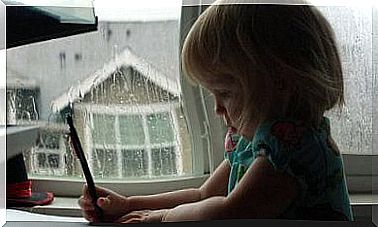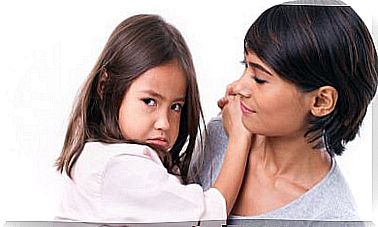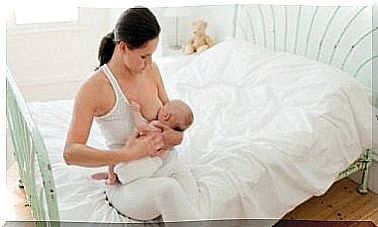8 Reasons Why We Should Not Underestimate The Role Of Parents
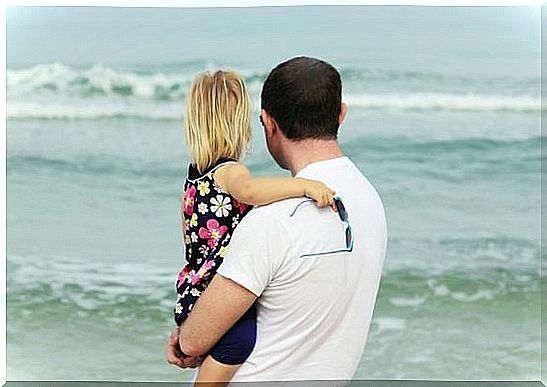
As is known, the vast majority of children tend to spend more time with their mother. However, a scientific study managed to verify the importance of the role of parents, who undoubtedly mark the lives of their children with fire.
Well, as it has been seen today, many couples decide to share functions when raising children, for which both work and perform domestic tasks concerning the home and caring for the little ones.
Discover in this article the eight reasons that science provided to demonstrate the weight of the role of parents in raising children, as supported by research conducted by California State University.
The role of parents, fundamental for the child’s life?
It is undeniable, fortunately parents are more involved in the lives of their children, even being the epicenter of all kinds of jokes and criticism regarding fatherhood. This, without a doubt, is very beneficial for the whole family.
Although we live upholding the role of the mother as the great mentor of life, of the growth and development of children, the presence of the father figure is a great advantage during the most plastic stages of the little ones.
On the one hand, it is a great help for the busy and overwhelmed mother who usually does not give enough between so many activities and duties that life as a woman implies. On the other hand, the father can enjoy every stage of his son’s development.
Along the same lines, children do not suffer the absence and emptiness typical of an absent father, but feel even more contained and accompanied, doubly, which helps enormously to forge a great childhood personality.

This study precisely focuses on the investment that has been taking place for years in traditional parental roles based on gender, which opens the way to an expansion of the type of relationship that children have with their parents.
And now, the eight reasons not to underestimate the role of parents
Fortunately, the recognition came for the work of the parents who broke an archaic, old-fashioned, retrograde and otherwise macho mold. Well, recent scientific research supports the importance of the role of parents.
In this way, science joined the debate and postulated eight remarkable aspects around the relationship between father and children, capable of combating the gaze of the father of the past and of annihilating the stereotypes of clumsy and incompetent parents.
- Parents are key when it comes to play. According to these studies, men have a greater interaction and weight in the context of children’s play, while mothers are more involved in planning and organization. Let us remember that, through play, children learn to control their body and their emotions, which prompts them to take risks and be more ambitious.
- A father provides security for his son. According to this study, fathers carry the flag of freedom by placing children facing the world while mothers, more protective, tend to face them. In this way, the research maintains that parents encourage their children to take risks, which can benefit them in their daily lives when interacting with the environment since they feel more confident and capable of solving problems. In other words, mothers give our children a certain sense of security and protection from the world, while fathers transmit that strength to them to go out and explore their world.

- They forge stronger relationships going forward. This study also maintains that “the idea that adolescents had about attachment was projected by the sensitivity of parents towards play”, referring to the ability of parents to know when to challenge their child and when to slow down during the game. play. This tug of war certainly influences the parent-child relationship, as it intensifies it, so it should not be underestimated. In parallel, this bond tends to influence the child’s ability to create stronger relationships with other people throughout his life.
- Their rejection affects the child more than that of the mother. As science has shown, the love of a father usually contributes more than that of a mother to the formation and development of the child’s personality. In addition, parental rejection can lead to behavioral problems, feelings of insecurity, anxiety and hostility in the least. In the same way, if a father repudiates his son, it also contributes to causing a series of problems in the child over time when it comes to creating solid relationships.
- A bad parent-child relationship can cause future stress. According to this controversial study, the love of a father clearly has a great impact on the development of the child, so much so that those children with a better paternal relationship had a better ability to solve problems and remain calm in the face of difficulties. Well, the little ones who claimed to have had a good relationship with their parents coped better with stress than those who denied a good bond with their parents.
- The importance of spending time with dad. This factor tends to improve children’s ability to connect with others in a positive way, that is, to be empathetic with their environment. However, it is worth clarifying that the report maintains that what ultimately counts is not simply the amount of time, but rather the quality that will build the perception of love in that parent-child bond.
- Influence of the love hormone? Research shows that as soon as children are born, oxytocin levels increase in fathers, a substance known as “the love hormone”, which allows a close father-son bond, thus facilitating the fundamental moments of play. Researchers even believe that the increase in these hormones in parents is caused by parenting itself, for example “holding the baby and picking it up, placing it to sit or encouraging it to explore and laugh.”
- Fathers also experience hormonal changes after parenthood. Just as moms suffer a hormonal explosion with the arrival of the baby, the testosterone of the parents decreases by 30% until the first three weeks of the infant’s life, so that here their protective paternal instinct is born and all aggressive behavior dies. In parallel lines, cortisol, that is, the attachment hormone, increases.

